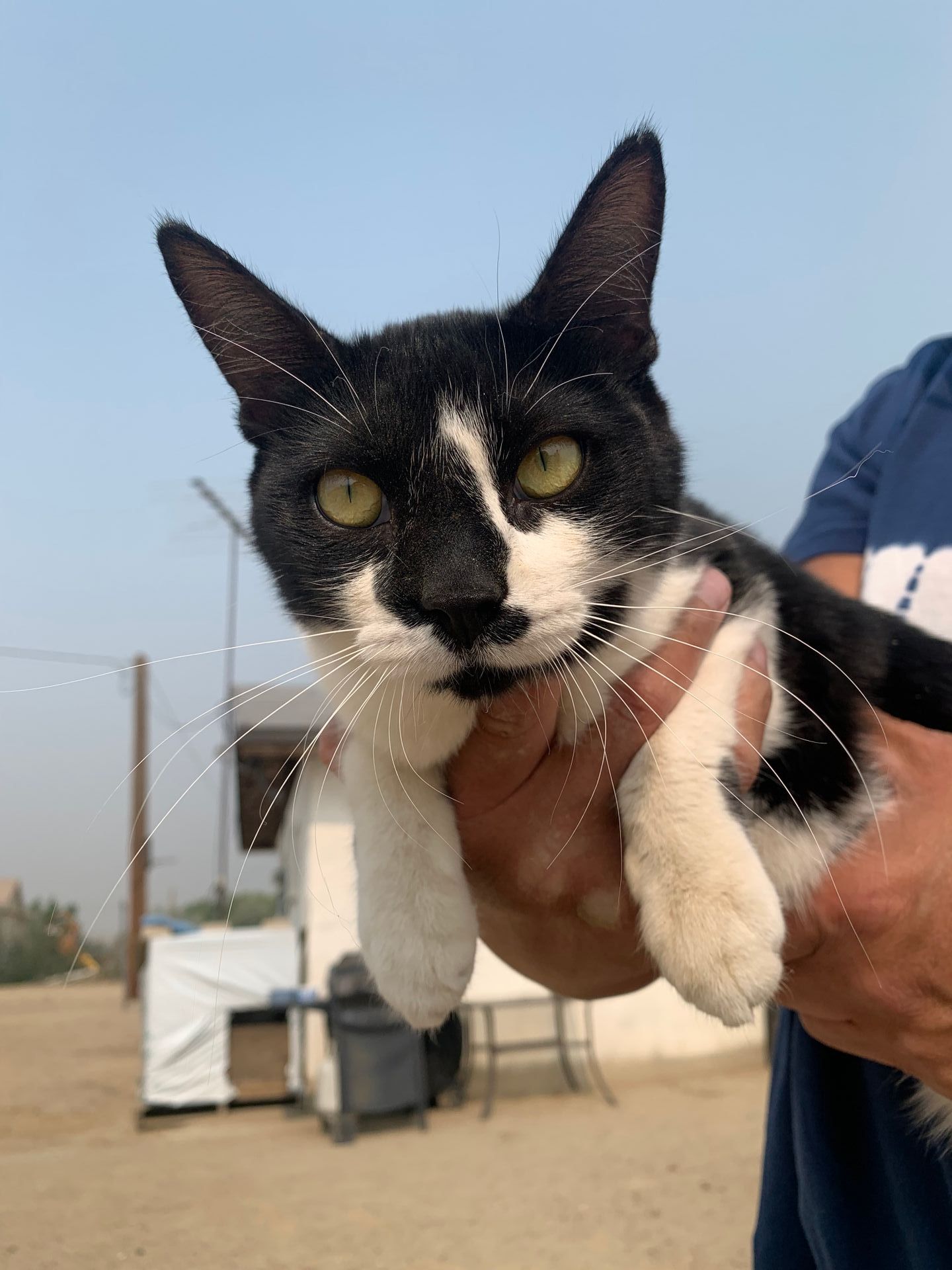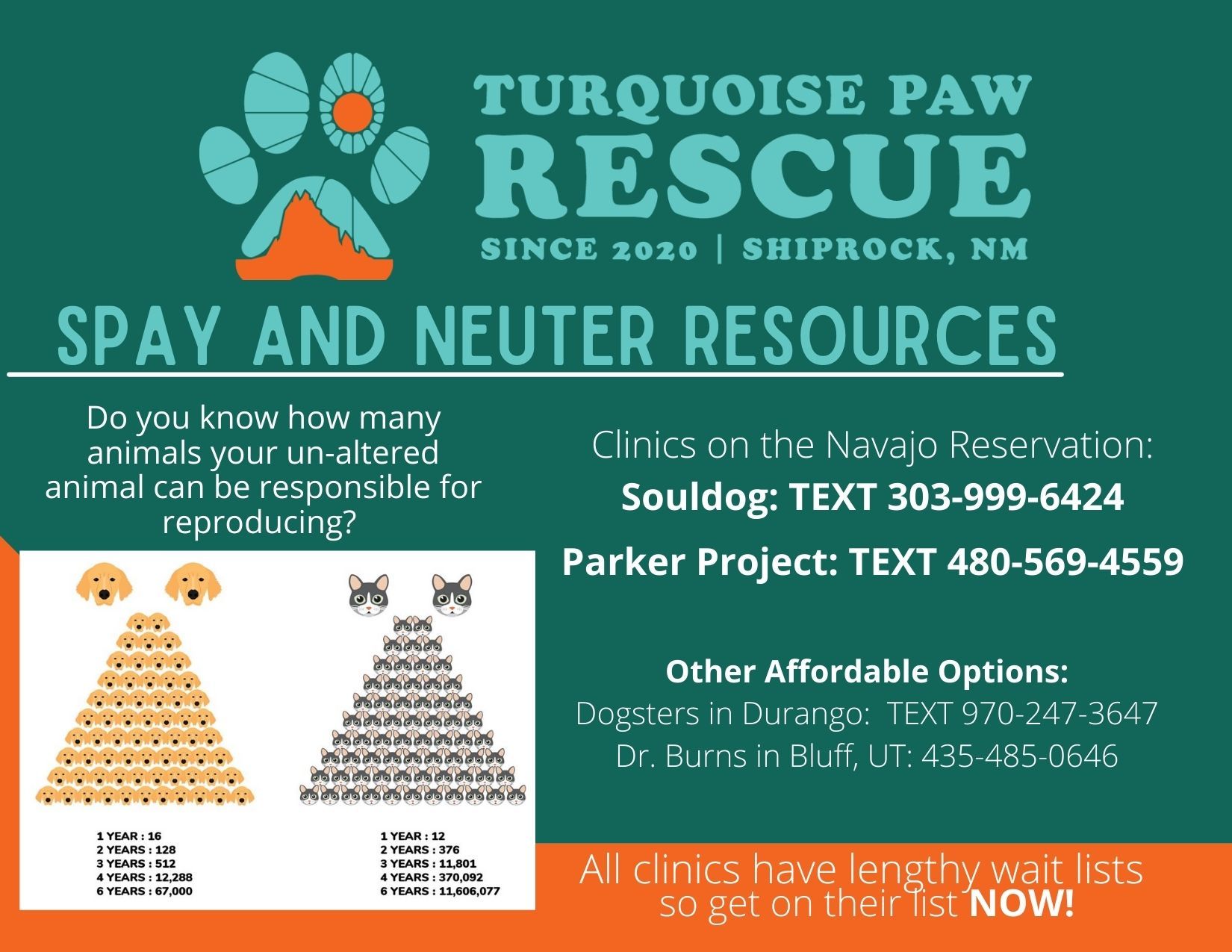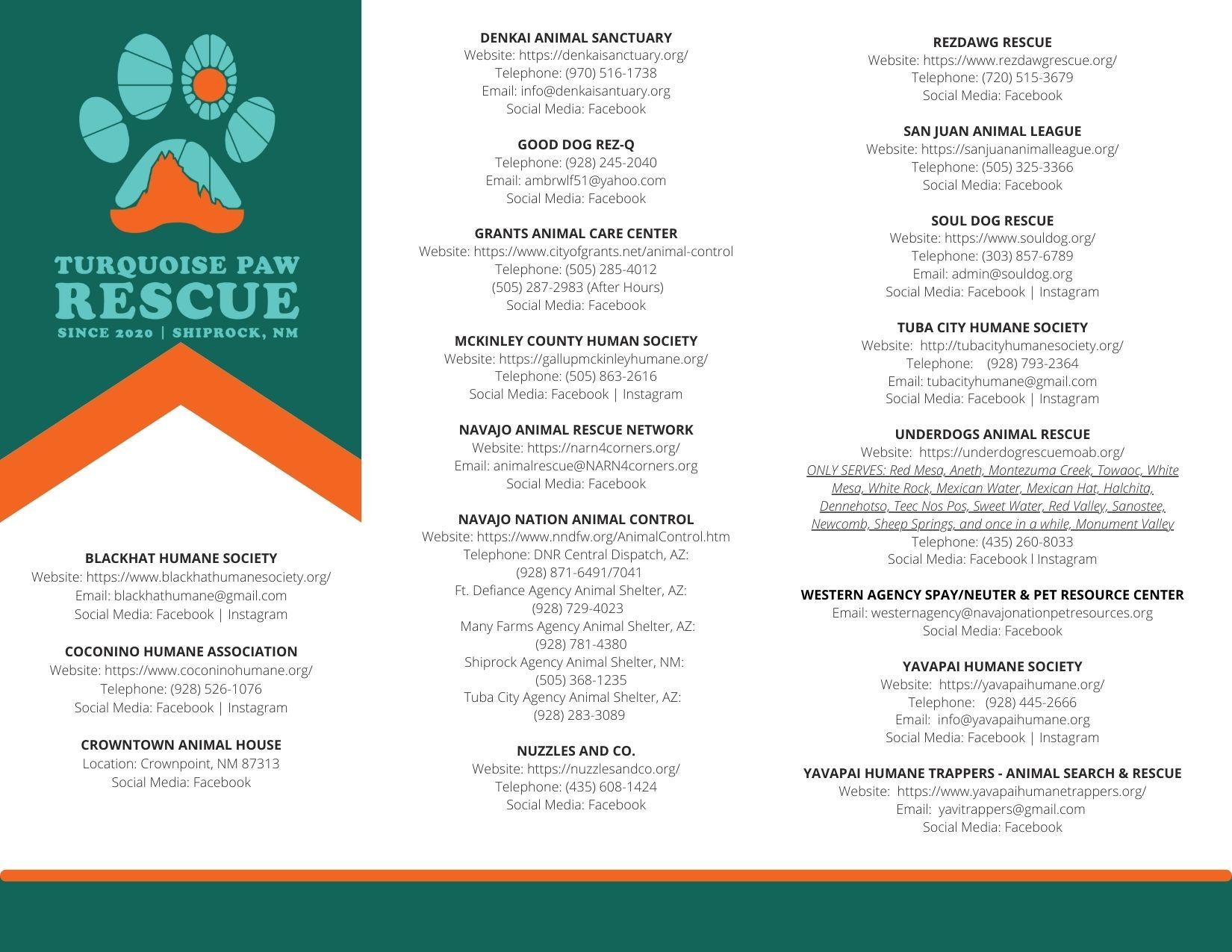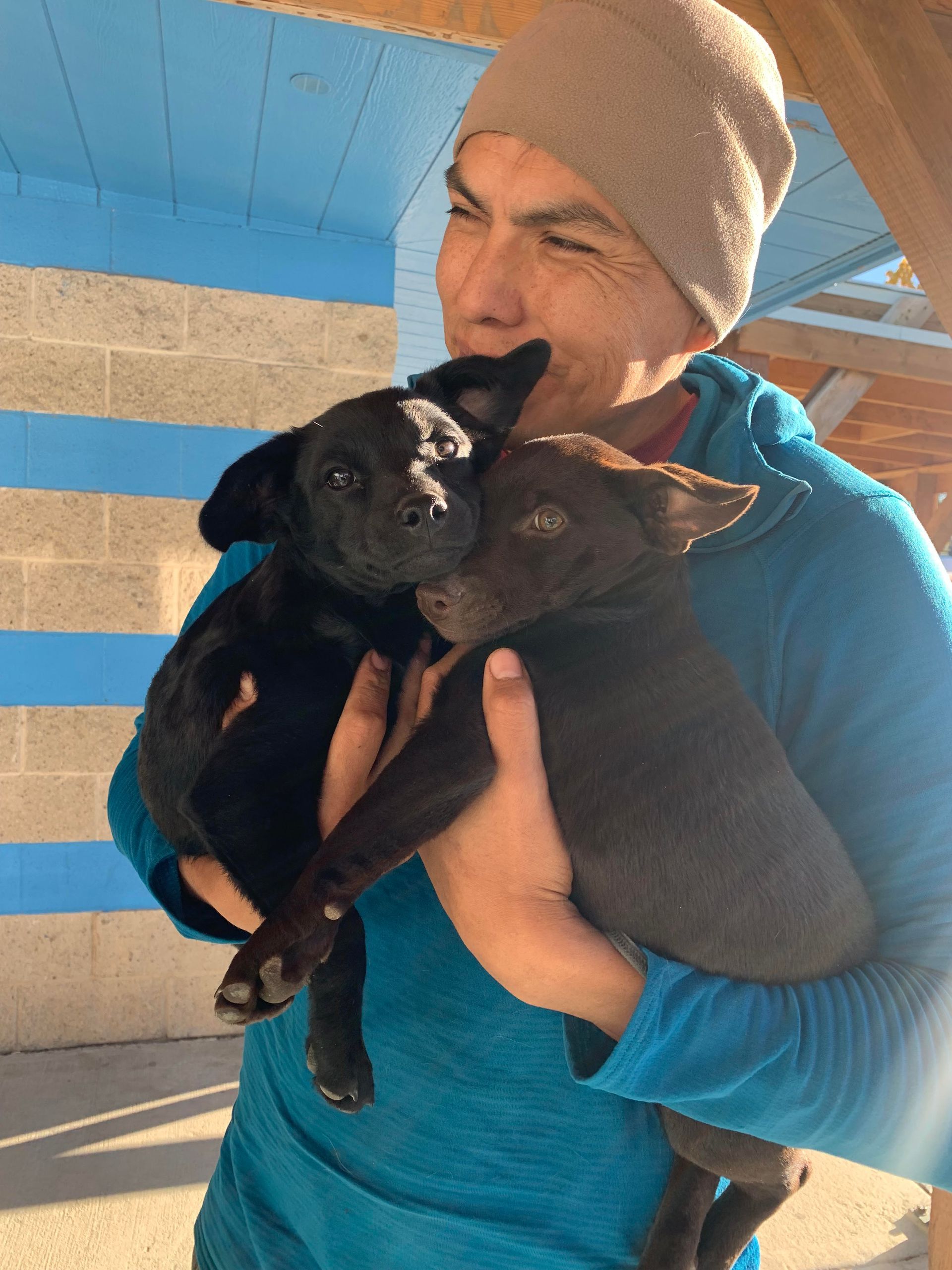TURQUOISE PAW RESCUE
Resources
Veterinary Information
The Four Corners Region of the USA is experiencing an unprecedented shortage of veterinarians available to treat animals within our area. The pandemic made an already nationwide vet-care crisis even worse because clinics were closed or services diminished, treatments and vaccinations were delayed, and the industry experienced a huge surge in demand.
The problem in the Four Corners Region is heightened due to only two of the four states having Veterinary colleges, vet graduates not wanting to work in rural areas, and the fact that wages in the region are behind other areas of the country.
If you are considering adopting a pet, start searching and interviewing for a veterinarian as soon as possible.
For a list of Veterinarians in your area, follow this link:
Flea, Ticks, and Parvo
Just how important is flea and tick prevention?
Very. Fleas and ticks aren’t just a nuisance – they carry diseases that put your pet and you at risk. Don’t let your loved little one get sick today when prevention is so easy!
Visit with your veterinarian today about what medication would be best for your pet. It’s easy, routine, and very effective.
Canine Parvovirus (Parvo)
Canine parvovirus is a highly contagious virus that can affect all dogs, but unvaccinated dogs and puppies younger than four months old are the most at risk. Dogs that are ill from canine parvovirus infection are often said to have "parvo." The virus affects dogs' gastrointestinal tracts and is spread by direct dog-to-dog contact and contact with contaminated feces (stool), environments, or people.
The virus can also contaminate kennel surfaces, food and water bowls, collars and leashes, and the hands and clothing of people who handle infected dogs. It is resistant to heat, cold, humidity, and drying, and can survive in the environment for long periods of time.
Even trace amounts of feces from an infected dog may harbor the virus and infect other dogs that come into the infected environment. The virus is readily transmitted from place to place on the hair or feet of dogs or via contaminated cages, shoes, or other objects.
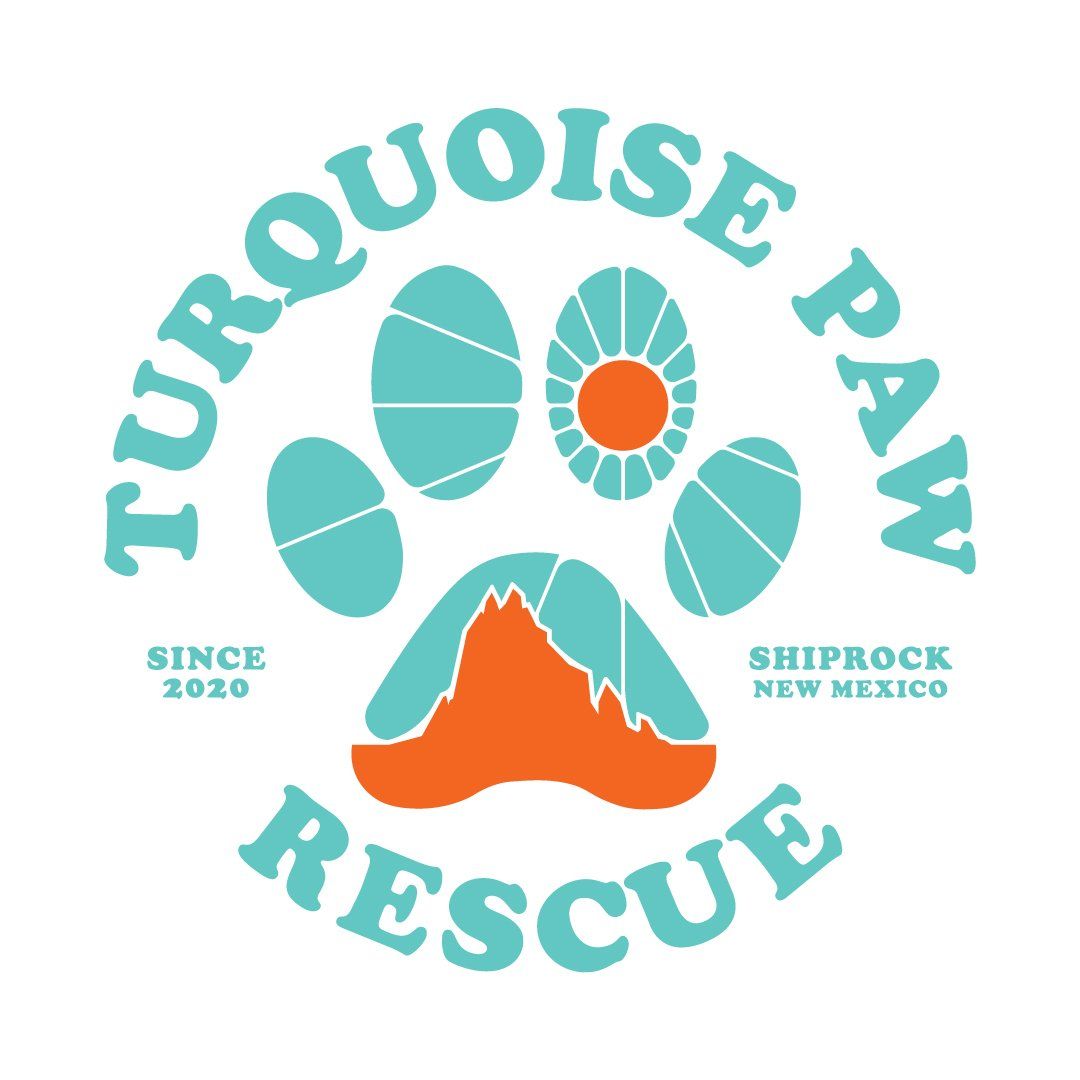
Some of the signs of parvovirus include
Loss of appetite
Abdominal pain and bloating
Fever or low body temperature (hypothermia)
Vomiting
Severe, Often bloody diarrhea
Persistent vomiting and diarrhea can cause rapid dehydration, and damage to the intestines and immune system can cause septic shock.
Preventing Parvovirus
Vaccination and good hygiene are critical components of prevention.
Puppies should receive a dose of canine parvovirus vaccine between 8 and 16 weeks of age to develop adequate protection. Until a puppy has received its complete series of vaccinations, pet owners should use caution when bringing their pet to places where young puppies congregate

Distemper
Canine distemper is a contagious and serious disease caused by a virus that attacks the respiratory, gastrointestinal, and nervous systems of puppies and dogs. The virus can also be found in wildlife such as foxes, wolves, coyotes, raccoons and skunks.
How is canine distemper prevented?
Vaccination is crucial in preventing canine distemper.
A series of vaccinations is administered to puppies to increase the likelihood of building immunity when the immune system has not yet fully matured.
Avoid gaps in the immunization schedule and make sure distemper vaccinations are up to date.
Avoid contact with infected animals and wildlife
Use caution when socializing puppies or unvaccinated dogs at parks, puppy classes, obedience classes, doggy day care and other places where dogs can congregate.

The Importance of Proper Vaccines
Caring and loving your animal will require more than the long walks and fun games of fetch you’ll share. Keep your pets happy and healthy by staying up to date on their vaccinations. Dogs and cats need routine rounds of vaccinations starting at just three weeks old, and yearly vaccinations that help maintain their health.
Why?
It keeps your pets healthy and functioning at their best. No one wants to worry about the things their pets can get into – because we know they always find some kind of mischief! Take the stress out of worrying about your pet’s health and keep them vaccinated and living a life they’ll love.

